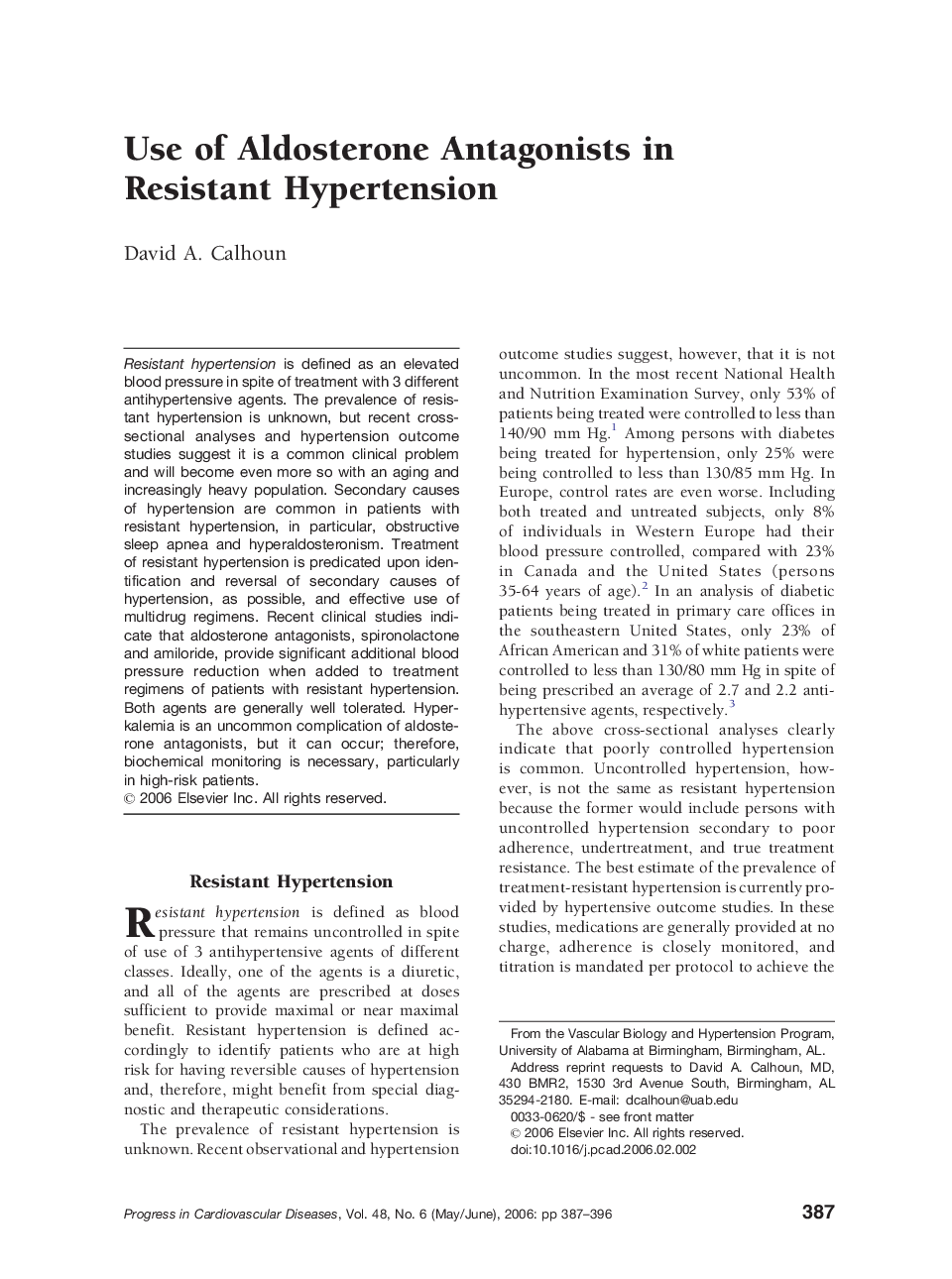| Article ID | Journal | Published Year | Pages | File Type |
|---|---|---|---|---|
| 3007055 | Progress in Cardiovascular Diseases | 2006 | 10 Pages |
Resistant hypertension is defined as an elevated blood pressure in spite of treatment with 3 different antihypertensive agents. The prevalence of resistant hypertension is unknown, but recent cross-sectional analyses and hypertension outcome studies suggest it is a common clinical problem and will become even more so with an aging and increasingly heavy population. Secondary causes of hypertension are common in patients with resistant hypertension, in particular, obstructive sleep apnea and hyperaldosteronism. Treatment of resistant hypertension is predicated upon identification and reversal of secondary causes of hypertension, as possible, and effective use of multidrug regimens. Recent clinical studies indicate that aldosterone antagonists, spironolactone and amiloride, provide significant additional blood pressure reduction when added to treatment regimens of patients with resistant hypertension. Both agents are generally well tolerated. Hyperkalemia is an uncommon complication of aldosterone antagonists, but it can occur; therefore, biochemical monitoring is necessary, particularly in high-risk patients.
